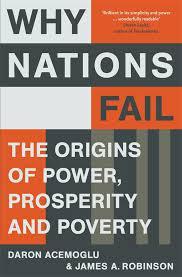 Yes, Shiny New Books went live this morning – we were all there (virtually) for a momentous switch-on at 8am. We think it looks amazing, and hope so much that you do, too. I do strongly recommend that if you want to start an online magazine, you do so with Annabel, Harriet and Simon. They are such talented and hard-working people. But now of course it’s over to you. Visit, read lots of reviews, leave your comments and don’t forget to enter the competitions – oh and if you’re a keen reviewer, think about writing for us, too.
Yes, Shiny New Books went live this morning – we were all there (virtually) for a momentous switch-on at 8am. We think it looks amazing, and hope so much that you do, too. I do strongly recommend that if you want to start an online magazine, you do so with Annabel, Harriet and Simon. They are such talented and hard-working people. But now of course it’s over to you. Visit, read lots of reviews, leave your comments and don’t forget to enter the competitions – oh and if you’re a keen reviewer, think about writing for us, too.
Now, I promised you all a tale of disaster, wrought by my own two hands… So for this we have to go back to early February, when we were in the thick of finding our books and sourcing reviews. Whilst we editors have our individual sections for which we have final responsibility, we all help out with reviews across the board. I was thinking about the non-fiction section and wanting to get a bit more variety in there, when Ms Thrifty, my friend in the book shop, happened to mention that her husband was reading and enjoying Why Nations Fail, a big socio-economic title. Now, I had a mental flashback to seeing the book on the new shelves in Heffers, and I thought, hmm, what an interesting bit of variety that would provide. So I asked Ms Thrifty if Mr TH would be so kind as to give us a review. I knew he liked writing and is a very intelligent sort of chap.
Well, Mr TH thought about it and said he would. He’d been given the book for Christmas, so I had a quick look at dates on amazon, saw that it was a February release, and figured that the paperback would soon be out. And onwards we went. The copy deadline neared, Mr TH gave up television watching in the evenings so he could finish the book and write his review in time, we editors did all sorts of editorial things, and then the review arrived. Fantastic! Only Mr TH dropped me a line in an accompanying email saying: I’ve just noticed this came out in 2013. Uh-oh.
I checked the dates and read the whole thing this time. In my excitable haste on the previous occasion, I’d only looked at the month. And indeed, the paperback came out in 2013, and the hardback in 2012. Not so shiny-new, then (heaven only knows what I hallucinated on the shelves of Heffers). Of course this had to happen with the one reviewer who did not have a blog of his own and had written the review specially for us. So, with no further ado, I will give you below the review of:
Why Nations Fail
by James A. Robinson & Daron Acemoglu
Reviewed by Edward Leigh (editor of The Reformist)

The authors of this book make the bold assertion that just one of these candidates is of primary significance: the nature of a nation’s economic and political institutions, in particular whether they are ‘inclusive’ (that is, serving the majority of citizens) or ‘extractive’ (serving an elite).
Now even if this is not the last word on the subject (and it surely won’t be), it is nevertheless a highly instructive lens through which to view history. What is most exhilarating about reading this book is its historical and geographical breadth, encompassing the Spanish conquest of South America, the Glorious Revolution in England, the Meiji Restoration in Japan, and diverse other case studies.
The authors anticipated a sceptical response to their thesis and so begin the book with examples of where geography and culture cannot be the primary factors in determining progress, where two geographically adjacent or culturally homogeneous peoples diverged markedly following a historical inflection point or ‘critical juncture’ (to use the authors’ terminology). Nogales is the name of two cities that have grown up either side of the 1853 US-Mexico border: Nogales, Arizona, ranks far higher in terms of economic and social development than Nogales, Sonora; yet the people share the same ancestry and geography. Similarly, since the division of Korea along the 38th parallel in 1945, the two countries have diverged drastically: according to the UN’s GDP figures, South Korea now ranks 15th in the world; North Korea 119th. The Black Death (around 1350), which decimated the population of Europe, was followed in western Europe by peasant revolts that led to the end of serfdom, better pay and working conditions, and ultimately greater participation in government; whereas in eastern Europe there was a resurgence of serfdom, which held back social progress until the Napoleonic invasions in the 19th century.
The point is this: events that change the course of history, such as wars, plagues and famines, do not in themselves predetermine the outcome. The authors refer to these events as ‘contingencies of history’, which may seem trivialising, but their theory is that the outcome is actually determined by the societal institutions that pre-exist such an event, or that grow up in response to it.
One of the keys to progress is ‘creative destruction’, the displacement of one industry or methodology by another. Arkwright’s water frame could spin 100lb cotton in 300 hours, something that previously took 50,000 hours. The invention inevitably put many workers out of a job, but it also created new jobs that required different skills. One of the cornerstones of the authors’ theory is that political and economic institutions that permit creative destruction thereby permit progress and adaptation; whereas institutions that protect the narrow interests of an elite, be they government cronies, landowners, capitalists or well-organised workers’ unions, may progress for a while, but ultimately regress, often precipitously, as in the case of the Khmer Empire (Cambodia) and the Soviet Union. This may seem self-evidently true, but what is interesting is the authors’ analysis of why some monarchs and governments were able to resist creative destruction, whereas others were not.
The strength of any theory lies in its power to predict and explain, and the authors do a convincing job of proving their theory. Their analysis of post-colonial Africa is especially insightful. The (literally) extractive institutions created by colonial powers were taken over at independence by indigenous rulers. Almost all of them, most notably Congo’s Joseph Mobuto, Sierra Leone’s Siaka Stevens, and Zimbawe’s Robert Mugabe (who even rigged a national lottery so that he won the top prize), felt little inclination to dismantle those institutions, which quickly enriched and corrupted them, their cronies and successors, at terrible cost to their citizens. Only really Botswana stands out as a beacon of social progress in sub-Saharan Africa.
China will be a major test of the authors’ theory. In contrast to most political commentators, the authors believe that China’s rise is not inexorable: the market-based reforms of Deng Xiaoping have created more inclusive economic institutions, but the political institutions remain as extractive as they were under Mao Zedong—just how extractive is well illustrated by this statistic from What’s gone wrong with democracy? (The Economist, 1st March 2014):
“The 50 richest members of the China’s National People’s Congress are collectively worth $94.7 billion—60 times as much as the 50 richest members of America’s Congress.”
At some stage, which may be sooner rather than later, China’s continued development will require creative destruction and greater pluralism, which is something that the Communist Party will resist, possibly to the bitter end.
The book reviewed:
James A. Robinson & Daron Acemoglu, Why Nations Fail (Profile Books: London, 2013). ISBN 978-1846684302, 560pp, paperback.
Other recent books on this subject:
Jared Diamond, Collapse: How Societies Choose to Fail or Survive (Penguin: London, 2011). ISBN 978-0241958681, 590pp, paperback.
Ian Morris, The Measure of Civilisation: How Social Development Decides the Fate of Nations: The Story of Why the West Rules for Now (Profile Books: London, 2013). ISBN 978-1781250198, 400pp, paperback.
Francis Fukuyama, The Origins of Political Order: From Prehuman Times to the French Revolution (Profile Books: London, 2012). ISBN 978-1846682575, 608pp, paperback.
Niall Ferguson, Civilization: The Six Killer Apps of Western Power (Penguin: London, 2012). ISBN 978-0141044583, 432 pp, paperback.
